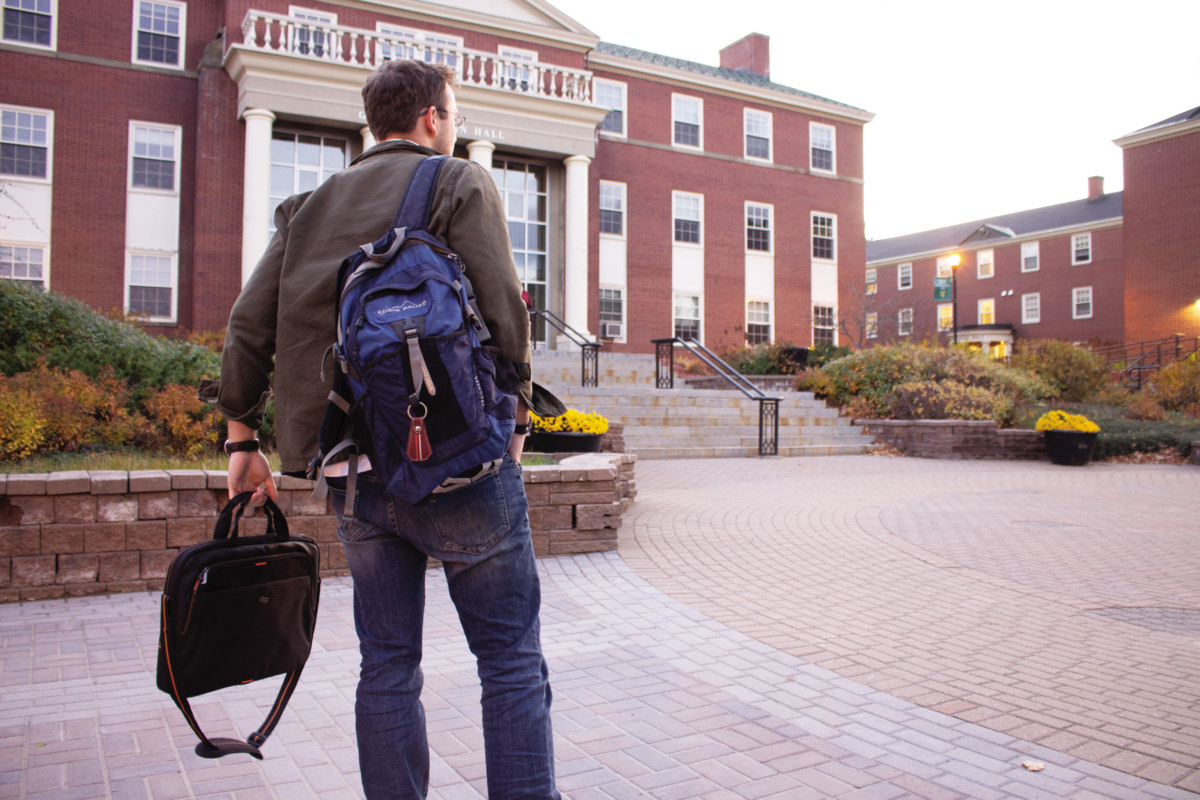In a St. Thomas University Senate meeting on Oct. 17, vice-president academic and research Kim Fenwick said four New Brunswick universities, including STU, received letters from the provincial government requesting information about how they, as universities, were going to prepare students for in-demand jobs in New Brunswick. Some of those jobs were truck drivers and fish farmers.
“It’s quite a concern and we’re just looking to faculty and others for support. There will be ongoing conversations about what universities actually do and what their value is to society,” said Fenwick at the meeting.
In the next ten years, over 120,000 jobs will become available in New Brunswick across a variety of markets. According to Minister of Post Secondary Education Trevor Holder, the province worries about who is going to fill those positions.
So what responsibilities do universities have to supply workers to the job market?
The future of New Brunswick
In September, all four public universities in New Brunswick met with Holder to discuss what the future of the New Brunswick workforce will look like and the role universities will play in it. Holder said the meeting was positive and historic.
He said everyone agreed on three things during the meeting: universities are producing the leaders of tomorrow, they need to align their actions with labour market demand and increase the attraction of international students.
“I think that it’s important to note that there’s been a lot of great work happening on our university campuses, a lot of great work with the experiential learning and our liberal arts and St. Thomas is making a good example of that,” said Holder.
Still, he said he would like to see universities focus more on experiential learning.
The manager of STU’s Experiential and Community-Based Learning office Clara Santacruz said STU is doing a great job at preparing students for the future job market.
The Experiential Learning office helps students connect with the workforce by offering internships, connecting students with STU alumni and offering different events to help students craft new skills, said Santacruz.
In the 2018-2019, academic year 469 students had experiential learning experiences such as internship, practicums and service learning.
Santacruz said the internship program is helping students learn new skills and gain work experience.
“Students really enjoy it and we have seen an uptick in employers in the city hiring students after their internships have ended.”
This academic year, STU launched STU Connects, an online platform to help students connect with alumni based on their interests and career goals.
“They can get resume help, interview help, or even just talk to them about what they did to reach the career they’re currently in.”
After graduation, 71 per cent of STU students stay in New Brunswick and a study done by the Maritime Provinces Higher Education Commission found that in 2018, 99 per cent of the class of 2012 were employed.
Focusing on the skills
STU’s associate vice-president of communications Jeffrey Carleton said the skills learned at STU gives students a lot flexibility and many job market options going forward.
He said people need to focus less on the knowledge and more on the skills that STU students gain when looking at how STU students are valuable to employers.
“Not all students who take anthropology are going to be an anthropologist, not all students take history are going to be historians and not all students who take journalism are going to be journalists.”
These skills include things like critical thinking, clear and concise writing and active listening.
The National Survey of Student Engagement shows that STU has a high national standing in aspects such as teaching methods, integrative learning, critical thinking for students and learning strategies.
“What the data tells us is students are not only getting the knowledge from their political science, history, anthropology and Great Books courses, they’re picking up skills along the way that are exceptionally valuable in the workforce.”
Carleton said the approach to the issue isn’t about a change in government but about the evolution of our economy.
“It’s the nature of the demographics. The workplace evolves and changes and it’s universities, it’s community colleges, it’s governments are trying to adjust to that to give the students the best opportunity we can for for a positive future,” said Carleton.
Holder said to ensure these numerous job openings are filled, all private and public universities, colleges and primary and secondary schools need to work together to fill the gaps in the labour market.
“There are things that quite frankly, we shouldn’t expect universities to do. There are other things that the private colleges and the publicly-funded colleges can do as well.”
Holder said there are many jobs that will open up in the future that require a university education and many that will not.
He said this is an all hands-on-deck issue, and he plans to go forward by including faculty associations and the business community in these conversations.
“We’ve got to get a plan in place as quickly as possible but do it in a way where it’s not piecemeal. It has to be done right.”

